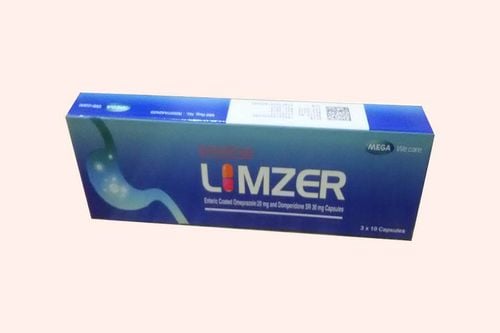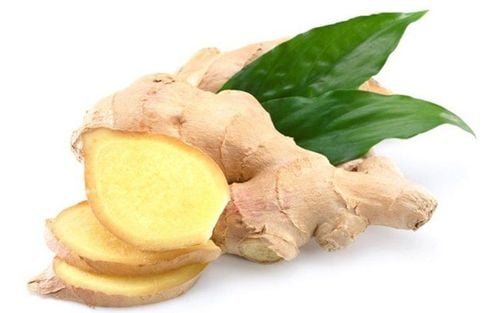Written by MSc, MD, Mai Vien Phuong - Department of Examination and Internal Medicine - Vinmec Central Park International Hospital.
If you are dealing with the burning sensation of acid reflux, you have probably tried many treatments to get relief. While over-the-counter medications and lifestyle changes can help, natural remedies, like ginger, can also ease your symptoms.
1. What are the benefits of ginger?
Ginger is a staple in Chinese medicine. In small doses, ginger can act as an anti-inflammatory in your body's systems. However, if you take too much, you can make your symptoms worse.
Benefits:
- Small doses of ginger can reduce irritation of the digestive tract.
- Ginger can reduce the ability of stomach acid to flow back into the esophagus.
- Ginger can also reduce inflammation. This can reduce the symptoms of acid reflux.
- Ginger is rich in antioxidants and may provide some medicinal benefits.
- Its phenolic compounds are thought to reduce irritation of the digestive tract and reduce stomach spasms. This means that ginger can reduce the ability of acid to flow back from the stomach into the esophagus.
- Ginger can also reduce inflammation. One study (2011) found that participants who supplemented with ginger had reduced symptoms of inflammation within a month.
- These anti-inflammatory properties are of particular interest to researchers, especially when it comes to acid reflux. This is because inflammation in the esophagus is a key feature of the condition.
- Ginger can also relieve nausea, prevent muscle pain, and reduce swelling.
2. What Does the Research Show?
While ginger’s anti-inflammatory properties may make it effective against acid reflux, there is no medical basis for this. At this time, there is no research on whether ginger is an appropriate treatment for acid reflux symptoms or not.
Research on ginger is largely limited to its ability to reduce nausea. Researchers are still investigating the overall safety of ginger and any medicinal properties it may have.
3. How to Use Ginger for Acid Reflux
Ginger can be peeled, then grated, diced, or shaved for use in cooking. It can be eaten raw, steeped in water to make ginger tea, or added to soups, stir-fries, salads, or other meals.
One of the chemicals found in ginger is an ingredient in some antacid medications. Ginger is also available in powder, capsule, oil, or tea form.
The most important thing to remember is to take ginger in moderation. About 4 grams—less than an eighth of a cup—is enough to help relieve your pain without making your symptoms worse. You can also divide it up and take it several times a day.
4. Risks and Warnings
When used in small doses, there are very few side effects associated with ginger use. Minor side effects may include bloating or gas.
If you have an inflammatory condition such as acid reflux, taking more than 4 grams of ginger in 24 hours may cause additional heartburn.
Side effects are often associated with ginger powder.
5. Other Treatments for Acid Reflux
There are many over-the-counter (OTC) treatments you can try if you have occasional acid reflux.
- Antacids can help neutralize stomach acid and provide quick relief.
- H2 blockers, such as cimetidine (Tagamet) and famotidine (Pepcid), reduce the amount of acid your stomach releases.
Proton pump inhibitors, such as omeprazole (Prilosec), work to reduce stomach acid and heal the esophagus. Stronger medications are available to help treat more severe cases of the condition. You will need a prescription for these medications. Your doctor may recommend one or more of these medications for best results:
- Prescription-strength H2 blockers.
- Prescription-strength proton pump inhibitors such as esomeprazole, lansoprazole, etc.
- Esophageal-strengthening medications, such as Baclofen, can reduce the frequency with which your sphincter relaxes and allow acid to flow upward. These medications have “significant” side effects and are usually reserved for the most severe cases of GERD.
If medications do not provide relief, surgery may be another option. Doctors typically perform one or two procedures for people with GERD. One involves strengthening the esophageal sphincter using a device called the LINX. Another strengthens the sphincter by wrapping the upper part of the stomach around the lower esophagus.
6. Conclusion
Small doses of ginger may be a safe, effective treatment for acid reflux. As with many alternative treatments, the evidence is lacking. More research is needed to assess its true effectiveness.
If you choose to try ginger, be sure to talk to your doctor. They can provide further guidance and make sure it will not interact with any medications you may be taking. Your doctor can also know the exact diagnosis if your reflux becomes severe.
Please dial HOTLINE for more information or register for an appointment HERE. Download MyVinmec app to make appointments faster and to manage your bookings easily.














